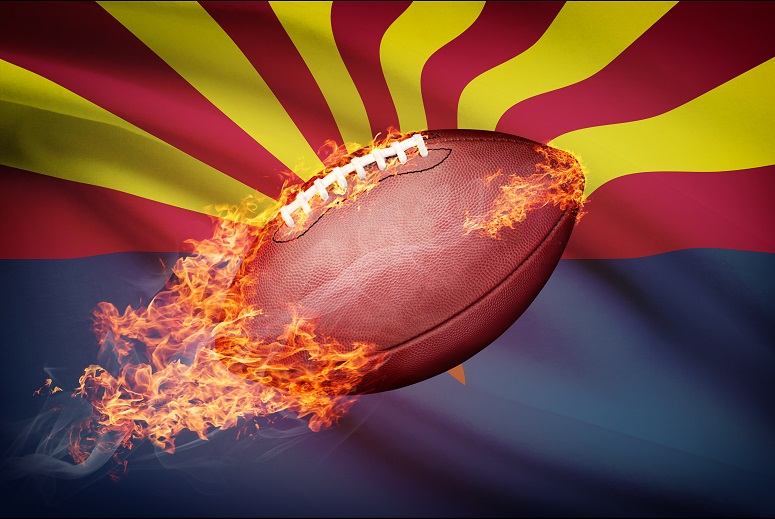PHOENIX (AP) — Arizona’s general fund collected just over $1.3 million in taxes during the first two months of legalized sports betting, far below the high expectations set by Gov. Doug Ducey and other proponents of the new gambling law.
Fantasy sports betting also was a bust for state coffers, bringing in just $46,000 to the state general fund in September and October.
Credit a lot of free bets on sporting events with erasing what would have been a much bigger take, add in an immature market that just launched fantasy sports betting in late August and full-on sports betting on Sept. 9 and things actually look good, according to Aiden Fleming, assistant director of the Arizona Department of Gaming.
A large number of sports gambling operations — especially the 10 licenses awarded to American Indian tribes to run online sports books — are not yet in operation. Only eight sports books, run by major sporting teams such as the Phoenix Suns in partnership with gambling companies, are in operation.
The estimates for the amount of cash the state will take in under the legalized sports betting law signed by Gov. Doug Ducey in April along with updated tribal gaming compacts vary widely.
The Legislature’s budget analysts estimated just over $15 million a year, while industry proponents put the number the number much higher. The bill sponsor, Republican Rep. Jeff Weninger of Chandler, at one point said it could be $100 million per year.
The Gaming Department said in a New Year’s Eve report that it took in more than $15 million from gambling on sporting events and fantasy sports. But that number included about $12 million in one-time licensing fees and just $1.3 million in taxes on betting operation earnings. Including ongoing fees of about $3 million a year, the state is barely on target to hit the lower estimate by the Legislature’s analysts.
Sports betting operations took in $777 million in September and October and paid out $706 million, leaving a profit of $68 million. But they also gave away $57 million in free bets, leaving just $10.3 million in profits, which is taxed at 10%.
The credits for those three bets, which are designed to lure people to the online and retail sports books, phase out over several years. They start at 20% of gross receipts in the first two years and then drop to 15% and then 10% before ending in the sixth year.
“There’s plenty of betting going on, and that kickstart of the free bets shows that it’s a pretty healthy market,” Fleming said.
Source: Associated Press





















